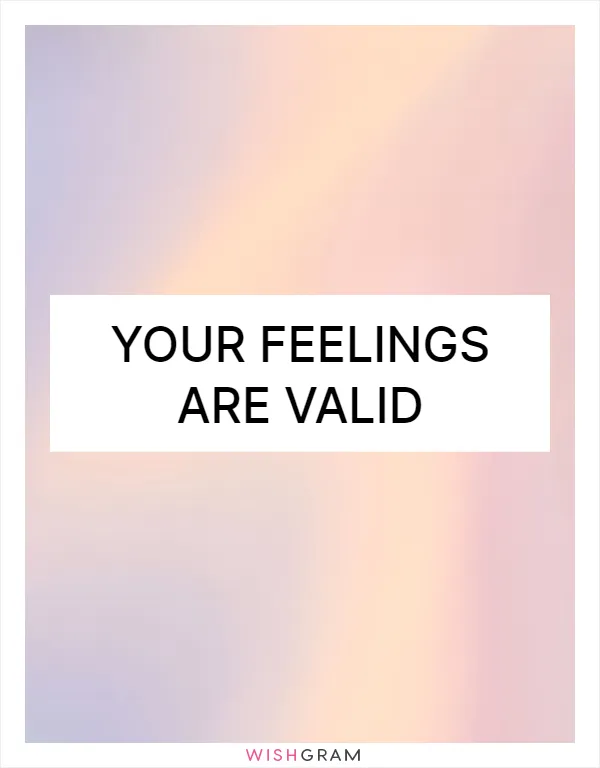Your feelings are valid
Caring for others is a fundamental aspect of being human. It involves empathy, compassion, and understanding. In the realm of caring, it is crucial to acknowledge that everyone's feelings are valid. Each person's emotions and experiences are unique, and it is essential to respect and validate them.
When we say, "Your feelings are valid," we are affirming the significance of someone's emotions. It means that their thoughts, reactions, and perceptions are legitimate and worthy of consideration. Validating someone's feelings is an act of empathy and support, fostering a safe and nurturing environment for open communication.
In the context of caring, validating someone's feelings can have a profound impact. It shows that we genuinely care about their emotional well-being and are willing to listen without judgment. By acknowledging their feelings, we create a space where they can freely express themselves, fostering a deeper connection and understanding.
Validation is not about agreeing with someone's emotions or experiences; it is about acknowledging their validity. It is about recognizing that their feelings are real and meaningful to them, regardless of whether we have personally experienced something similar. Validating someone's feelings does not require us to fix their problems or provide solutions; it simply means being present and showing empathy.
When we validate someone's feelings, we let them know that they are not alone. We assure them that their emotions matter and that we are there to support them. This validation can be particularly powerful during challenging times when individuals may feel overwhelmed, confused, or invalidated by others.
By validating someone's feelings, we create a safe space for them to explore their emotions and gain clarity. It encourages open and honest communication, allowing individuals to express themselves freely without fear of judgment or rejection. This validation can be a catalyst for personal growth and healing, as it helps individuals process their emotions and find their own solutions.
Moreover, validating someone's feelings strengthens relationships. It builds trust and deepens connections, as individuals feel heard and understood. When we validate someone's feelings, we demonstrate that we value their emotions and opinions, fostering a sense of mutual respect and appreciation.
It is important to remember that validating someone's feelings does not mean we have to agree with everything they say or do. It means that we acknowledge their emotions as valid, even if we have a different perspective. We can respectfully express our own thoughts while still validating their feelings, promoting healthy dialogue and understanding.
